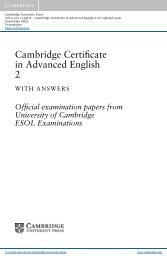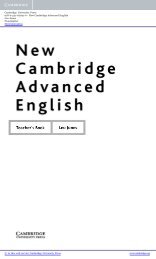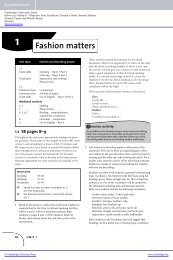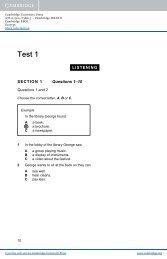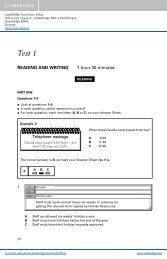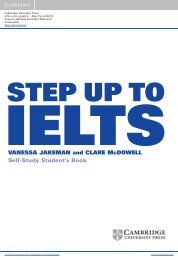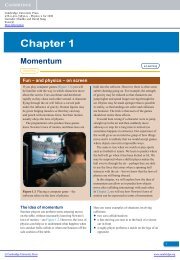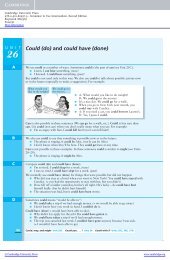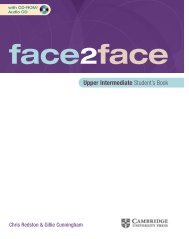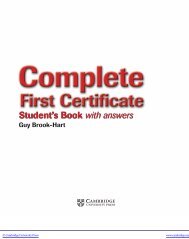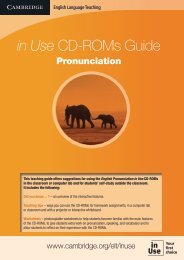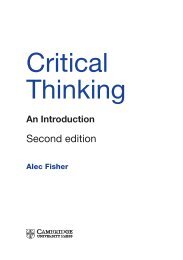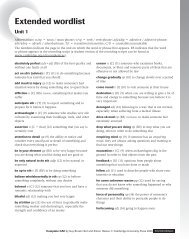Skills for Study Level 2 Teacher's Book - Cambridge University Press
Skills for Study Level 2 Teacher's Book - Cambridge University Press
Skills for Study Level 2 Teacher's Book - Cambridge University Press
You also want an ePaper? Increase the reach of your titles
YUMPU automatically turns print PDFs into web optimized ePapers that Google loves.
Introductioncases, even in texts which have been written by ourselves, we have tried to useauthentic data; however, in some instances, particularly where the teaching aiminvolves critical evaluation of an argument, texts with artificial data and referenceshave been used to avoid accidental misrepresentation of real writers’ work.Subject specificityThe academic skills and language focused on in the course are largely non-subjectspecific, although it is intended to provide a wide enough range of activities andperspectives on different topics to allow teachers to plot programs of study thattarget the specific needs of their students (e.g. tutors using books LS2 and SS2 canplot different pathways <strong>for</strong> students in humanities and business courses on the onehand, and the natural sciences on the other). The topics in the course have beenchosen <strong>for</strong> general interest, contemporary relevance, and overall accessibility tonon-specialists. It is hoped that they will encourage students to question the natureof the world around them and that of the near future in which they will act duringtheir studies and after graduation from university.Task authenticityAs far as possible, the tasks that students are engaged in are designed to beacademically authentic. Since most academic-related procedures (e.g. planning,researching and delivering an academic presentation) take place over an extendedperiod of time, it is not always possible to replicate this fully in the classroom;however, many of the tasks should either involve academically authentic processingof in<strong>for</strong>mation and/or provide opportunities <strong>for</strong> some authentic academicallyrelated interaction (either person – person or person – text). On the basis that evenin academic contexts the overriding purpose is to communicate in<strong>for</strong>mation andideas, many tasks are designed to have a genuinely communicative element.Critical thinkingThe course is designed to promote and enhance students’ critical thinking abilities.Beginning with basic awareness of critical thinking in <strong>Level</strong> 1, there is a steadyincrease in the focus on critical thinking throughout the three levels, as well as anincrease in the cognitive challenge that tasks present. Many activities are designedexplicitly to teach critical thinking, while in other authentic academic tasks use ofthis skill is necessary <strong>for</strong> successful completion of the activity. Students learn notonly to analyze logic and assess the validity of claims, but also to consider howlanguage use can be used to shape claims.RecyclingThe course as a whole offers opportunities <strong>for</strong> self-analysis, and peer and teacherfeedback. It also provides recycling of key targets throughout individual booksand the course. We recognize that the split between skills and language is notalways definitive, and there<strong>for</strong>e there are a number of features common to both (<strong>for</strong>instance hedging and signposting language).ReferencesHyland, K. (2004). Genre and second language writing. Ann Arbor: <strong>University</strong>of Michigan <strong>Press</strong>.Teacher’s Notes <strong>Skills</strong> <strong>for</strong> <strong>Study</strong> 2 ∙ Introduction 5



